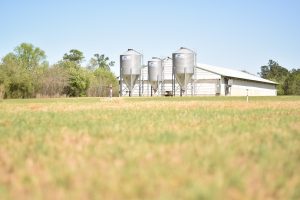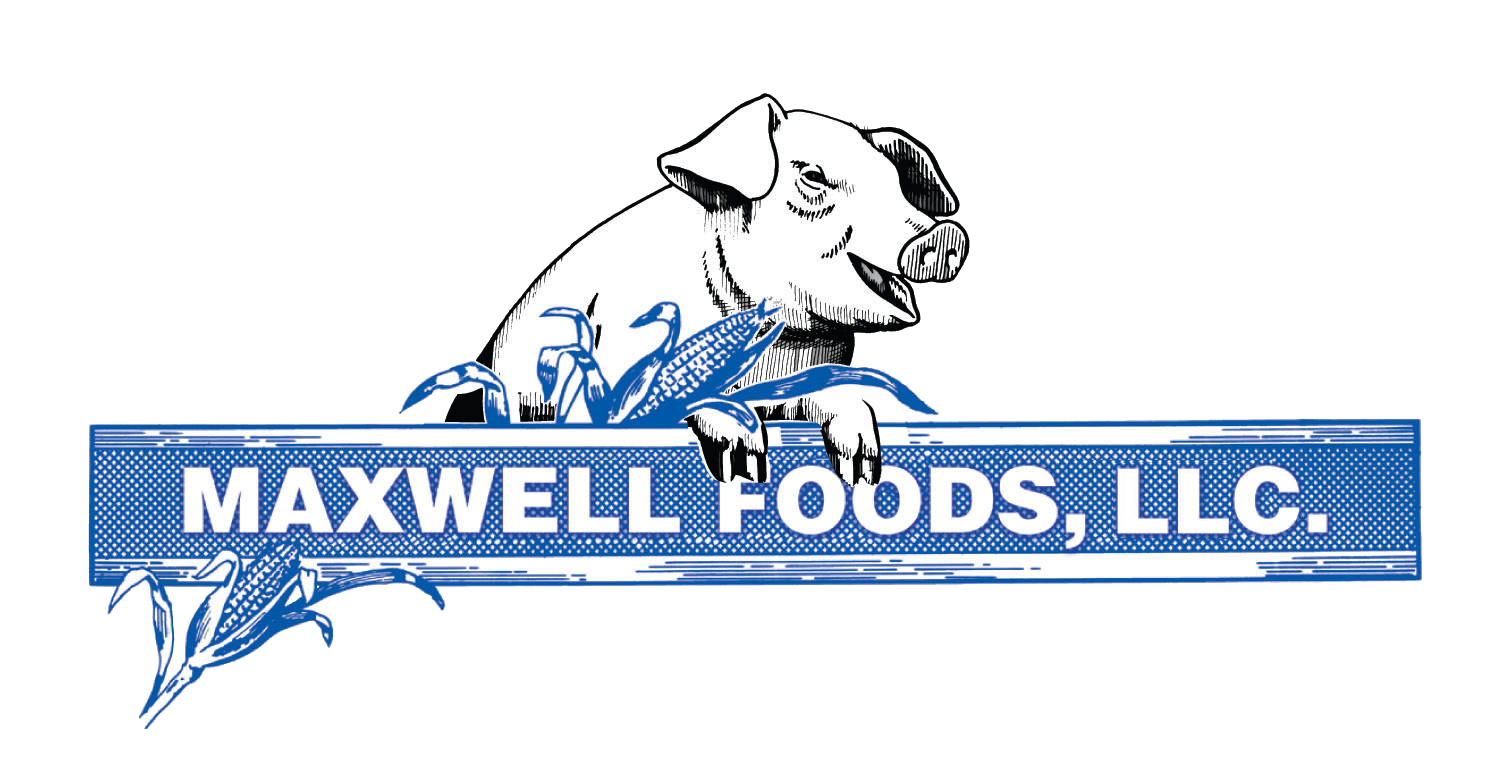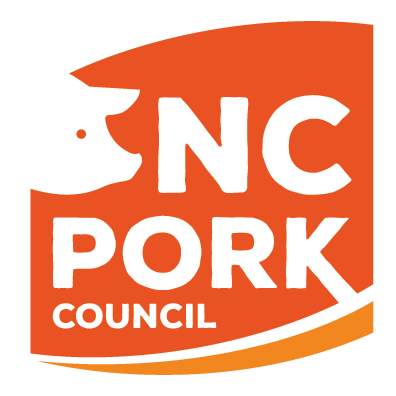Smithfield Trial: The Rest of the Story
 After reading the transcript of the trial I thought, They were in a trap before the first witness spoke a word.The roots of the lawsuit against Smithfield Foods run back over five years to when a pair of out-of-state lawyers, Charles Speer from Kansas City and Richard Middleton from Savannah, saw a way to make money by suing North Carolina hog farmers.To file their lawsuits Speer and Middleton needed clients. So, with the help of anti-hog farming groups, lawyers from their firms knocked on doors of farmers’ neighbors, saying, ‘Sign here, we’ll file the lawsuit, we’ll pay the bills, and if we win you’ll get part of the money.’It worked. They signed up hundreds of clients.They then partnered with a North Carolina law firm, Wallace and Graham, and filed their lawsuits. But, not long after that, a state judge sent Speer and Middleton packing, adding he didn’t ever want to see them in his courtroom again. The judge handed the lawsuits (and the clients) to Wallace and Graham which then partnered with a law firm from Texas.Earlier this year, before the first ‘nuisance’ trial started, the lead lawyer from Texas asked the judge to instruct Smithfield’s lawyers not to mention Speer and Middleton to the jurors. And the judge agreed. So, Smithfield couldn’t tell jurors about lawyers filing lawsuits to make money.As soon as the trial started the plaintiffs’ lawyer, Michael Kaeske, began hammering Smithfield Foods, telling jurors Smithfield was a big corporation with a lot of money and if it had just spent $500 million it could have cured the problems with odor on hog farms across North Carolina. Why hadn’t Smithfield done that? The answer was simple: Greed. Michael Kaeske made Smithfield Foods into a villain.And when the trial ended that was the picture the jury had: Smithfield was a greedy varmint and Michael Kaeske’s clients were long-suffering victims.No juror ever heard the rest of the story. Because no lawyer could ask a plaintiff: You lived beside Billy Kinlaw’s hog farm for 18 years and never complained once about odor – until those lawyers from Missouri and Georgia knocked on your door and said you could make money if you joined their lawsuit. Was that a coincidence?The jurors didn’t even know that the lawyers standing in front of them, suing Smithfield Foods, had asked the judge to keep that fact from them.Often, at the end of a trial, a jury has to answer a straightforward question: Who’s the villain? Michael Kaeske, free to say pretty much whatever he wanted about Smithfield Foods, turned it into a villain. And Smithfield’s lawyers, with their hands tied, couldn’t tell the rest of the story.
After reading the transcript of the trial I thought, They were in a trap before the first witness spoke a word.The roots of the lawsuit against Smithfield Foods run back over five years to when a pair of out-of-state lawyers, Charles Speer from Kansas City and Richard Middleton from Savannah, saw a way to make money by suing North Carolina hog farmers.To file their lawsuits Speer and Middleton needed clients. So, with the help of anti-hog farming groups, lawyers from their firms knocked on doors of farmers’ neighbors, saying, ‘Sign here, we’ll file the lawsuit, we’ll pay the bills, and if we win you’ll get part of the money.’It worked. They signed up hundreds of clients.They then partnered with a North Carolina law firm, Wallace and Graham, and filed their lawsuits. But, not long after that, a state judge sent Speer and Middleton packing, adding he didn’t ever want to see them in his courtroom again. The judge handed the lawsuits (and the clients) to Wallace and Graham which then partnered with a law firm from Texas.Earlier this year, before the first ‘nuisance’ trial started, the lead lawyer from Texas asked the judge to instruct Smithfield’s lawyers not to mention Speer and Middleton to the jurors. And the judge agreed. So, Smithfield couldn’t tell jurors about lawyers filing lawsuits to make money.As soon as the trial started the plaintiffs’ lawyer, Michael Kaeske, began hammering Smithfield Foods, telling jurors Smithfield was a big corporation with a lot of money and if it had just spent $500 million it could have cured the problems with odor on hog farms across North Carolina. Why hadn’t Smithfield done that? The answer was simple: Greed. Michael Kaeske made Smithfield Foods into a villain.And when the trial ended that was the picture the jury had: Smithfield was a greedy varmint and Michael Kaeske’s clients were long-suffering victims.No juror ever heard the rest of the story. Because no lawyer could ask a plaintiff: You lived beside Billy Kinlaw’s hog farm for 18 years and never complained once about odor – until those lawyers from Missouri and Georgia knocked on your door and said you could make money if you joined their lawsuit. Was that a coincidence?The jurors didn’t even know that the lawyers standing in front of them, suing Smithfield Foods, had asked the judge to keep that fact from them.Often, at the end of a trial, a jury has to answer a straightforward question: Who’s the villain? Michael Kaeske, free to say pretty much whatever he wanted about Smithfield Foods, turned it into a villain. And Smithfield’s lawyers, with their hands tied, couldn’t tell the rest of the story.
Nuisance Lawsuits Affect More than Smithfield & Hog Farmers
 After reading how a jury in a federal courtroom in Raleigh awarded 10 people – who’d sued Smithfield Foods over one hog farm – $50 million, because the farm was a ‘nuisance,’ a puzzled farmer in a nearby county observed, I obey the laws. I comply with all the regulations. I’ve never had a violation. But I can still be sued for millions of dollars? How does that make sense?And a lady, who raises hogs on her farm, raised a different question. In an email, she explained her hog farm employs two workers and also pays a truck driver. She buys parts and equipment from local stores. She buys insurance from a local agency, supplies at a local hardware store, and pays rent for land – in addition to her own land – to retired farmers. Her family eats at local restaurants, buys oil and gas from local service stations, and cars or trucks from local automobile dealers. And she pays property taxes which, in turn, pay for schools.Her point? It’s not just hog farmers who stand to be hurt by that verdict in Raleigh. It’s people in communities and small towns across North Carolina.Right now, that $50 million-dollar verdict involving one farm is being appealed. But a second lawsuit filed by the lawyers, about another farm, begins May 29th. And there’re eight more lawsuits on the docket in federal court after those two. And a lot of people – from truck drivers to hardware store owners to insurance agents – who’ve never raised a hog have a stake in the outcome.Hog farming is one of the pillars of North Carolina’s economy. Let’s hope wiser heads – and justice – prevail in the Court of Appeals.
After reading how a jury in a federal courtroom in Raleigh awarded 10 people – who’d sued Smithfield Foods over one hog farm – $50 million, because the farm was a ‘nuisance,’ a puzzled farmer in a nearby county observed, I obey the laws. I comply with all the regulations. I’ve never had a violation. But I can still be sued for millions of dollars? How does that make sense?And a lady, who raises hogs on her farm, raised a different question. In an email, she explained her hog farm employs two workers and also pays a truck driver. She buys parts and equipment from local stores. She buys insurance from a local agency, supplies at a local hardware store, and pays rent for land – in addition to her own land – to retired farmers. Her family eats at local restaurants, buys oil and gas from local service stations, and cars or trucks from local automobile dealers. And she pays property taxes which, in turn, pay for schools.Her point? It’s not just hog farmers who stand to be hurt by that verdict in Raleigh. It’s people in communities and small towns across North Carolina.Right now, that $50 million-dollar verdict involving one farm is being appealed. But a second lawsuit filed by the lawyers, about another farm, begins May 29th. And there’re eight more lawsuits on the docket in federal court after those two. And a lot of people – from truck drivers to hardware store owners to insurance agents – who’ve never raised a hog have a stake in the outcome.Hog farming is one of the pillars of North Carolina’s economy. Let’s hope wiser heads – and justice – prevail in the Court of Appeals.
Questions About the Nuisance Lawsuit
 There’re a lot of people shaking their heads, worried about a jury verdict in Raleigh. Ten neighbors filed a lawsuit in federal court alleging the hog farm – one hog farm – near them was a nuisance. And a jury awarded them $50 million. $5 million each. So, now, across eastern North Carolina people are wondering, How many farmers could survive a verdict of $100,000 or $500,000 – much less $50 million? They’d go bankrupt.Now granted, this verdict wasn’t against the farmer who owned the farm. It was against Smithfield Foods. But if a Raleigh jury will award 10 plaintiffs $5 million each, could lawyers begin suing individual farmers next?Granted too, the $50 million verdict may be reduced. Because it violates the state law that limits punitive damages in these types of lawsuits. In fact, the Raleigh jury awarded fifteen times more than the state limit. But with millions of dollars at stake could the lawyers start looking for a way around the limit?It’s also true that, last year, the state passed another law that protects farmers from lawyers who bring these types of lawsuits. That law didn’t affect this case – and it won’t affect the other 9 cases the same lawyers have brought – because they were filed before the new law was passed. But, theoretically, the new law would protect farmers in the future from verdicts like this. But could the lawyers start looking for a way around that law too?The next trial – the second of the 10 original cases – starts on May 29th. The lawyers brought this case first because it was their best case. So history may not repeat itself. Next time the lawyers suing Smithfield Foods may lose. But what if there are more verdicts like this one? How many hog farmers could be put out of business? And what would that do to North Carolina’s economy?In North Carolina, the foundation of hog farming is a partnership between local farmers and companies like Smithfield Foods. A drought that hurts one, hurts the other. And a $50 million-dollar verdict that hurts one, hurts both. So a lot of farmers are wondering whether a lawyer from Texas, in one trial in a federal courtroom in Raleigh, turned their lives upside down. And they’re asking themselves, How does this end?The answer to that question matters to the lives of thousands of farmers. And the wrong answer could fracture a pillar of North Carolina’s economy. But getting the answers may take a while. The next trial begins on May 29th.
There’re a lot of people shaking their heads, worried about a jury verdict in Raleigh. Ten neighbors filed a lawsuit in federal court alleging the hog farm – one hog farm – near them was a nuisance. And a jury awarded them $50 million. $5 million each. So, now, across eastern North Carolina people are wondering, How many farmers could survive a verdict of $100,000 or $500,000 – much less $50 million? They’d go bankrupt.Now granted, this verdict wasn’t against the farmer who owned the farm. It was against Smithfield Foods. But if a Raleigh jury will award 10 plaintiffs $5 million each, could lawyers begin suing individual farmers next?Granted too, the $50 million verdict may be reduced. Because it violates the state law that limits punitive damages in these types of lawsuits. In fact, the Raleigh jury awarded fifteen times more than the state limit. But with millions of dollars at stake could the lawyers start looking for a way around the limit?It’s also true that, last year, the state passed another law that protects farmers from lawyers who bring these types of lawsuits. That law didn’t affect this case – and it won’t affect the other 9 cases the same lawyers have brought – because they were filed before the new law was passed. But, theoretically, the new law would protect farmers in the future from verdicts like this. But could the lawyers start looking for a way around that law too?The next trial – the second of the 10 original cases – starts on May 29th. The lawyers brought this case first because it was their best case. So history may not repeat itself. Next time the lawyers suing Smithfield Foods may lose. But what if there are more verdicts like this one? How many hog farmers could be put out of business? And what would that do to North Carolina’s economy?In North Carolina, the foundation of hog farming is a partnership between local farmers and companies like Smithfield Foods. A drought that hurts one, hurts the other. And a $50 million-dollar verdict that hurts one, hurts both. So a lot of farmers are wondering whether a lawyer from Texas, in one trial in a federal courtroom in Raleigh, turned their lives upside down. And they’re asking themselves, How does this end?The answer to that question matters to the lives of thousands of farmers. And the wrong answer could fracture a pillar of North Carolina’s economy. But getting the answers may take a while. The next trial begins on May 29th.
Farmkeepers Blog
The Farmkeepers is the official blog of NC Farm Families. It is here that words will flow, our voice will be heard, a stand will be made, and the farm families of North Carolina will be protected. In these posts, we'll set the record straight. You'll see the faces of the families who feed us. Here, you'll receive all the updates and news. It is here that we will fight for farmers and be the keepers of the farm in NC. We hope you'll join us. Follow along on social media and by joining our email list.
















